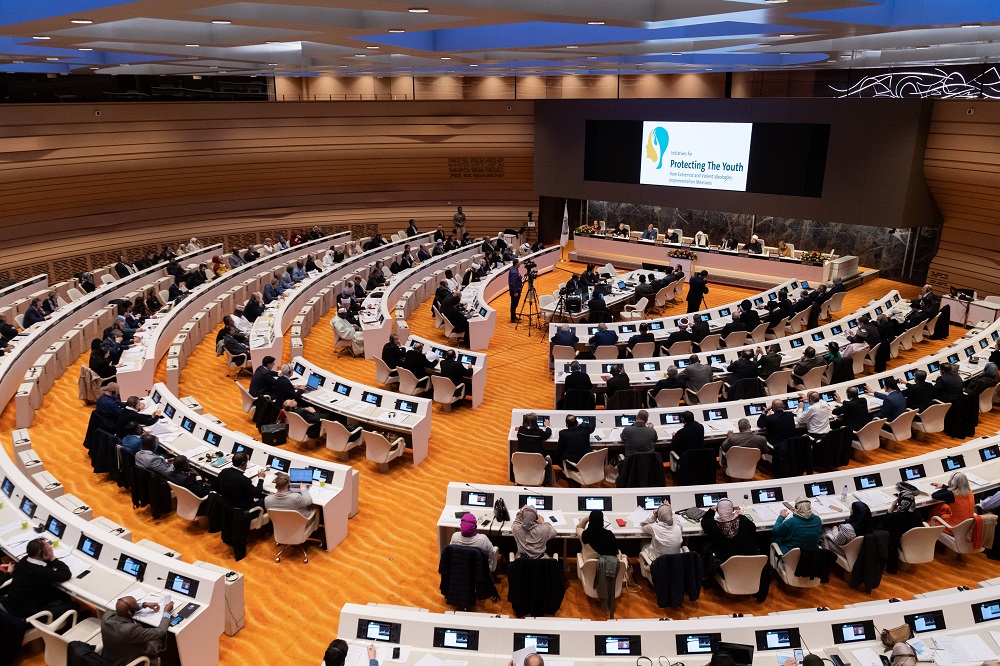
Dr. Husni Abdi argues that a young person's local context and social conditions are the most influential and predictive indicators of radicalization. Lack of structure creates vulnerability, and the link between delinquency and radicalization is no coincidence.
"There is no time to lose in prevention" - Chiara Sulmoni President of Start In Sight explains how online influence has shortened the timeline of radicalization to 6 months, versus the baseline of 2 years when only offline influences are factors.
Dr. Usamah Mohammed Elabed discussing Egypt's success with initiatives to create agency among its youth. Religious, academic, and political institutions alike have a place in creating support systems for young people and combating the influence of extremist ideologies.
Dr. Sami Fridhi of Ez-Zaytoonah University Tunis spoke about the message of moderation inherent in Islam, and encouraged including religious leaders to the dialogue to find solutions to the breakdown of families and communities, which he considers an important factor.
Thursday, 20 February 2020 - 09:50